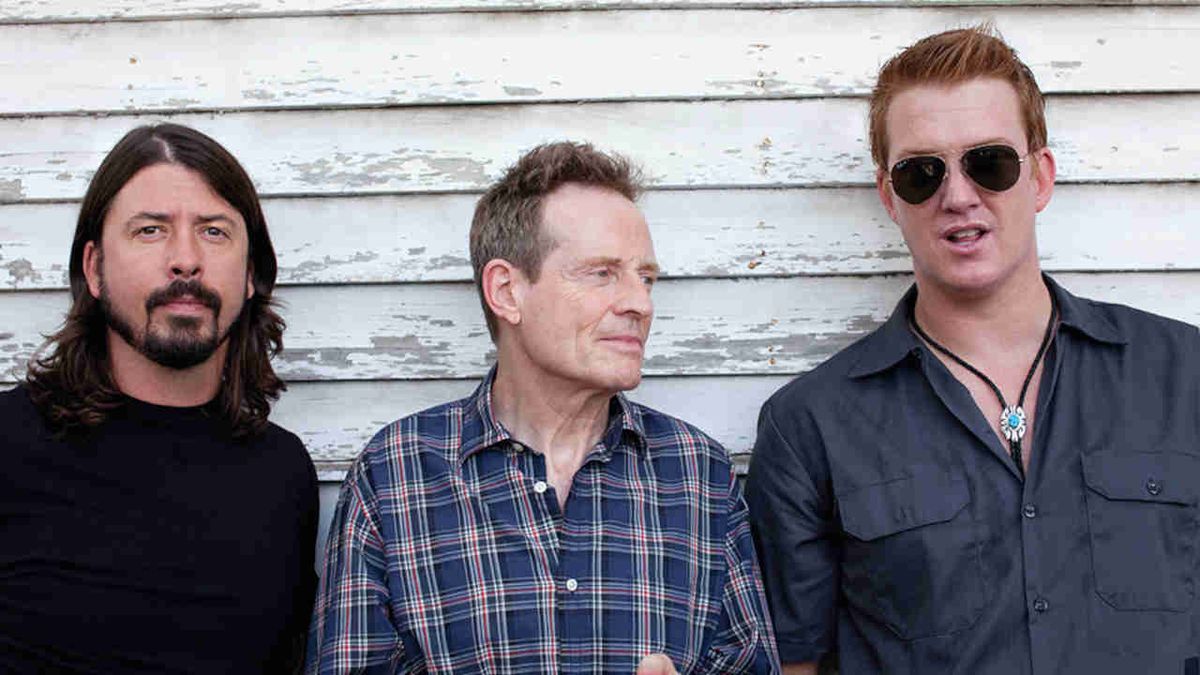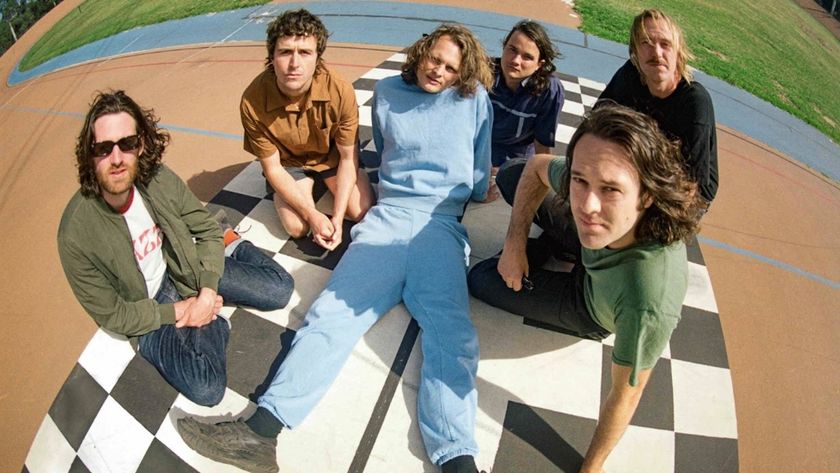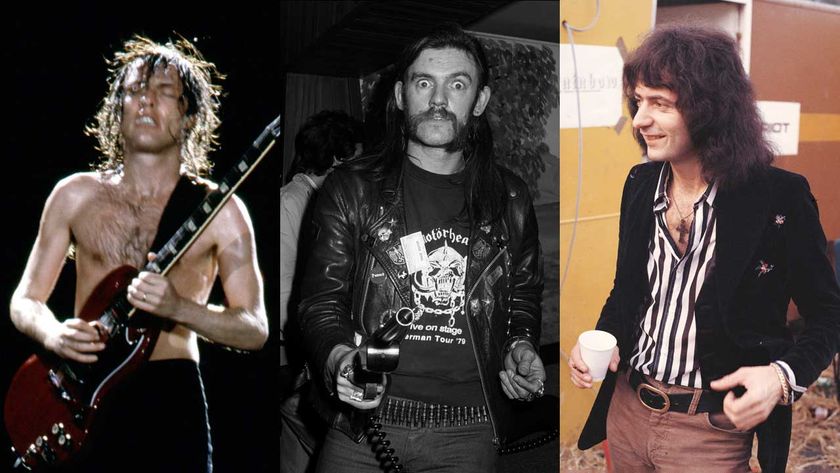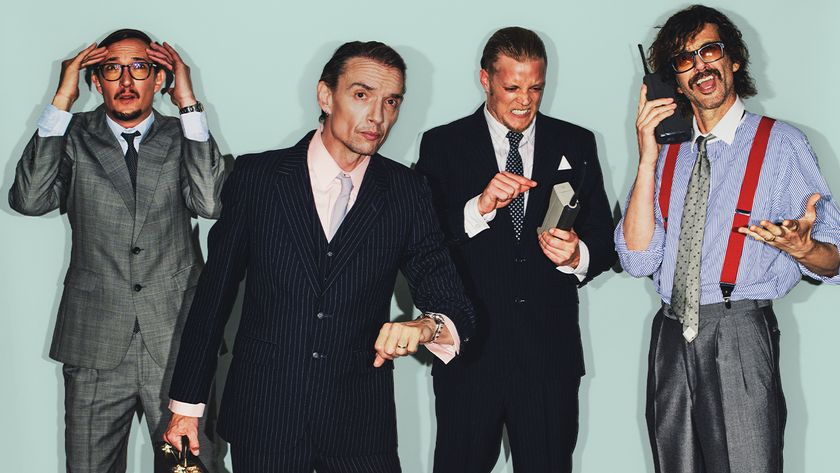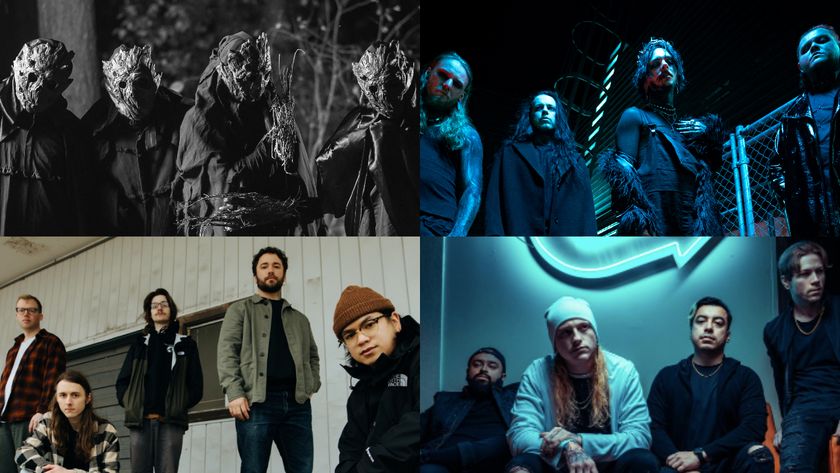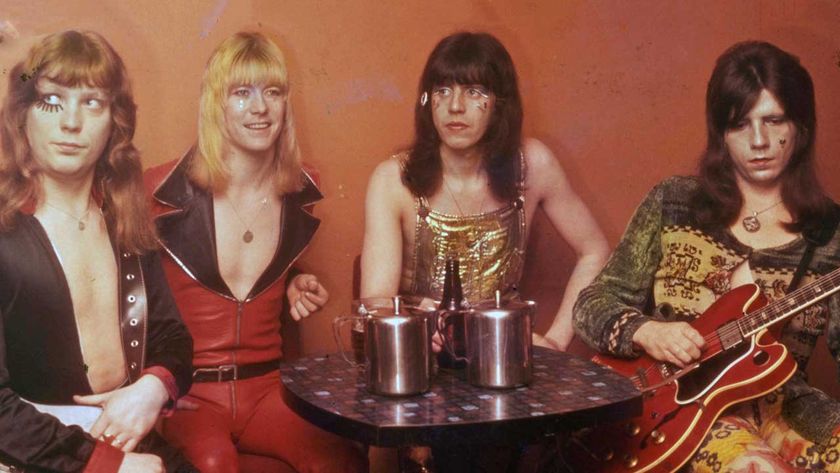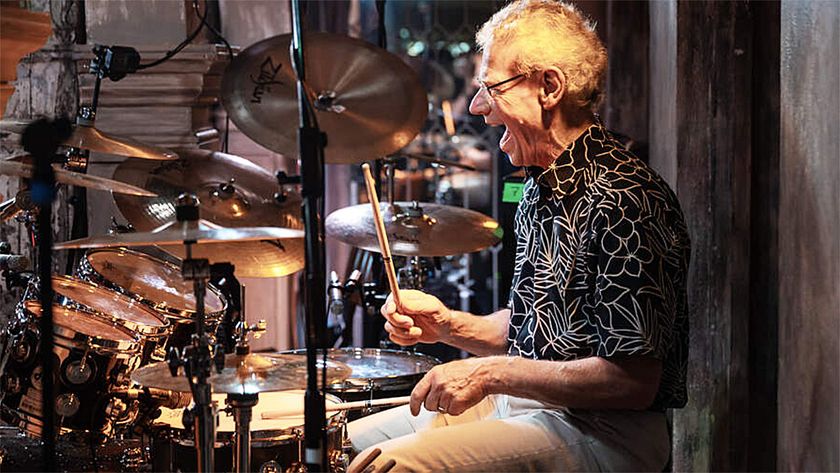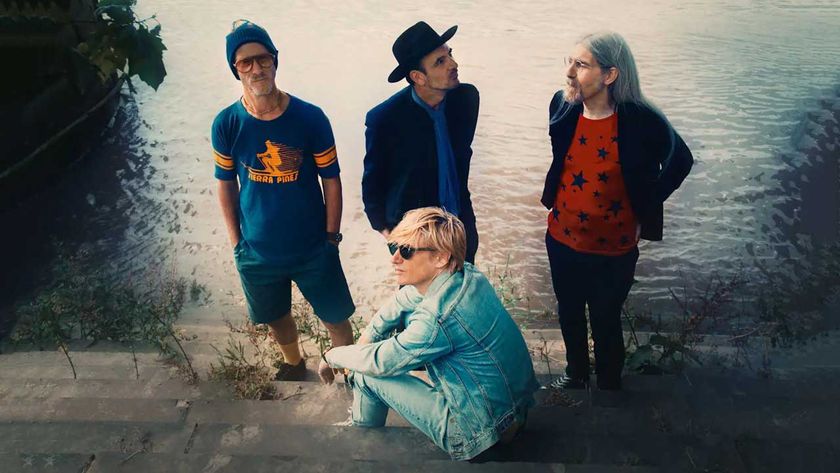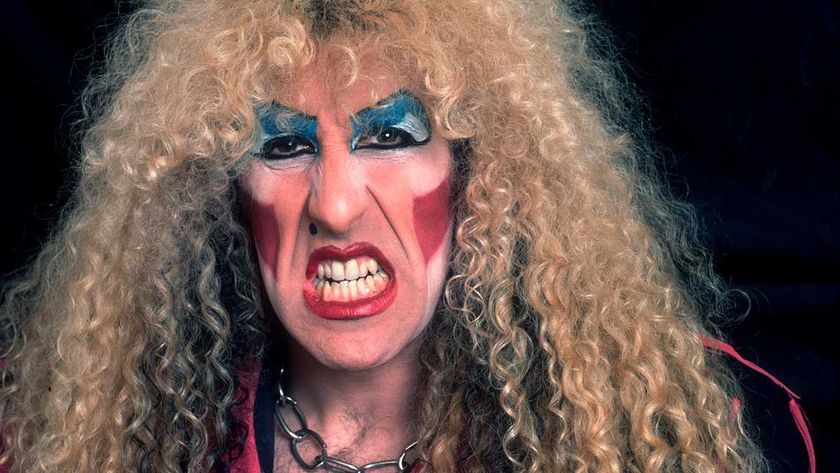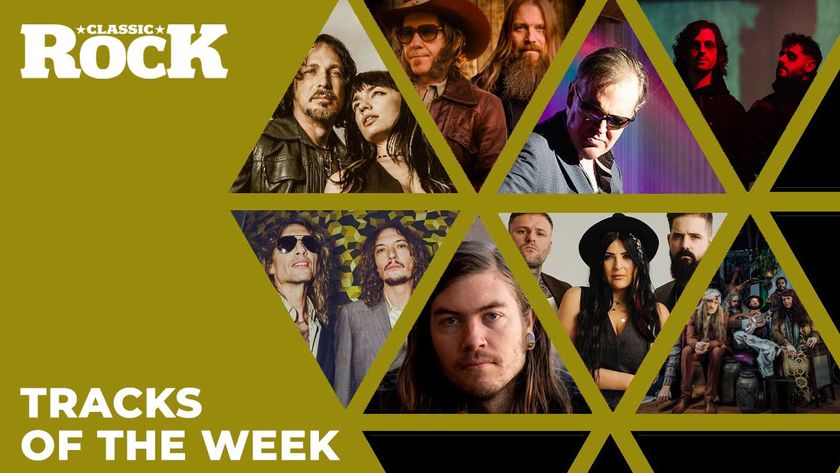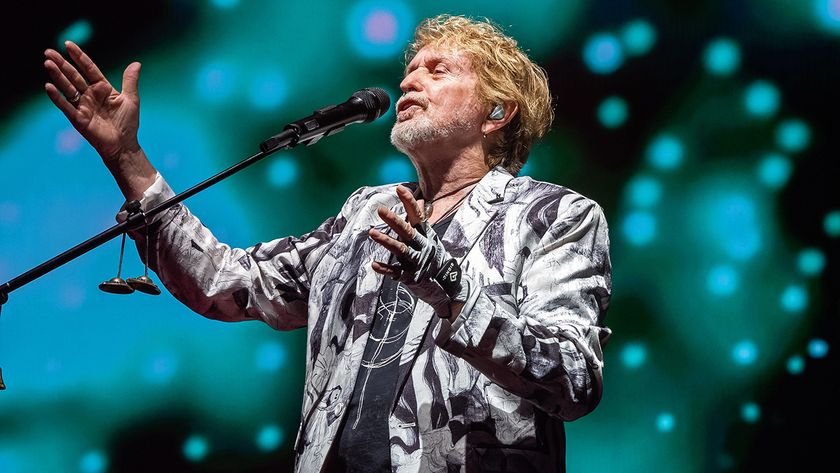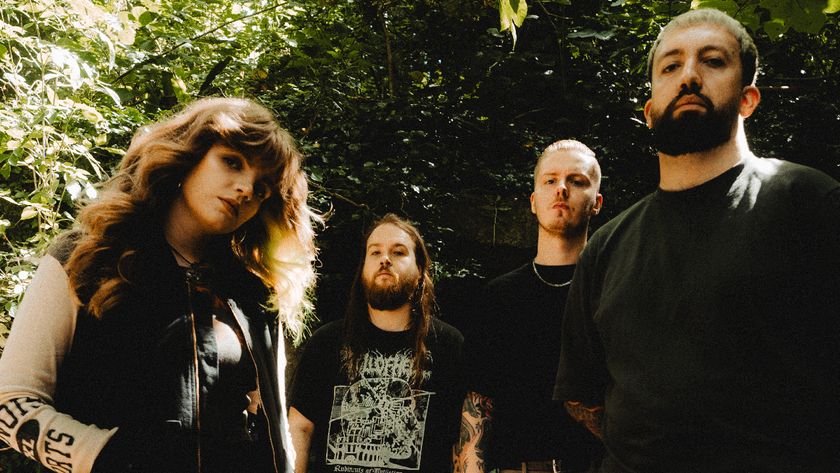Featuring Foo Fighters’ Dave Grohl, Queens Of The Stone Age’s Josh Homme and ex-Led Zeppelin bassist John Paul Jones, Them Crooked Vultures were one of rock’s great one-and-done supergroups. In 2010, shortly after they released their self-titled debut (and only) album, Classic Rock jumped talked to the trio about their all-star union - though not before being kept waiting for several days…

“You’re kidding, right?”
She’s got to be kidding.
“No, I’m afraid not. Really sorry.”
“But I’ve flown all this way to meet the band! And you’re saying it’s not going to happen?”
“Honestly, it was never actually confirmed that they’d do it. Sorry.”
Surely they can give me some time, I reason, desperately clutching at a fat metaphorical straw. Is there anything they can manage? What about tomorrow?
“There’s no room in the schedule either tomorrow or the day after,” she counters.
I’m due to fly home the day after.
“There’s a chance I might be able to get Josh on the phone on Sunday.” (Heavy emphasis is placed on the might.) “Or I might be able to get Dave sometime on Monday, though I really can’t be sure.”
I’m trying to stay serene on the outside, attempting to stem a fast-rising tide of inner panic and rage. This really wasn’t supposed to happen. Part of me – the illogical, eternally hopeful part of me – thinks it must be some kind of perverse joke, some grand comedic record company/management sting.
Only it really is true. I’ve travelled over 6,000 miles, across continent and ocean for the best part of 24 hours to meet and interview Them Crooked Vultures, the newest, biggest and most successful of that much-maligned über-genre of rock: the Supergroup. Only it’s not gonna happen. At all.
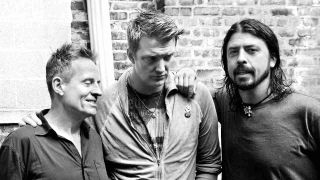
It’s mid-April and I’m standing outside Club Nokia, a smart live venue in the newly-generated entertainment complex that fringes downtown Los Angeles. It’s an area that also serves a 7,000-seat arena – Nokia LA Live – as well as hotels, restaurants, luxury condos, a Cineplex and the Staples Centre. Tonight Club Nokia is playing host to Them Crooked Vultures – the trio formed amid much stealth and secrecy last year by Foo Fighter/Nirvana man Dave Grohl, Queens Of The Stone Age/Eagles Of Death Metal magus Josh Homme and Led Zeppelin legend John Paul Jones.
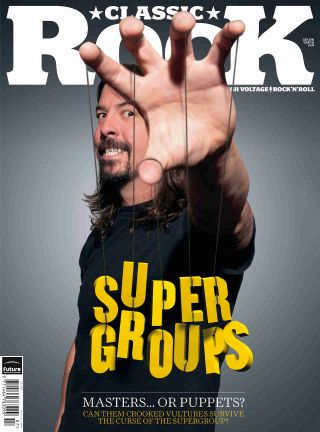
A week earlier, your Classic Rock scribe had met with the affable, eminently likeable Jones in a London hotel room, talking up his Vultures residency over that most English of afternoon delicacies: biscuit assortments and a pot of Earl Grey. Now I’m in LA to meet the other two as well, maybe hang out together for a bit, get a sense of what makes them motor. There’s much excitement at the prospect. This interview has been something of a marathon to organise, involving much heave-ho’ing between management camps and a slew of meetings and phone calls. Even Ross Halfin’s photoshoot, I’m told, was an arseache.
So here I am. The woman I’m talking to is Kristen, manager of all things Josh Homme and, therefore, one third of the decision-making team that oversees the Vultures. She’s polite and perfectly amiable but, it transpires, this whole proposal has fallen victim to some kind of misunderstanding or communicative blip. I can get in to see the show tonight, but that’s as much access as I’m going to get. The band’s UK PR had told me earlier in the day that there’d been a few “issues with scheduling” over the past 24 hours. But even he hadn’t anticipated this. Someone, somehow, somewhere – I understand later – has decided that the band aren’t going to meet me after all. It was a decision apparently taken while I was mid-air, mid-Atlantic.
Days pass and, thanks to a certain bloody-minded volcano in Iceland, I find myself in LA for over a week. I still don’t hear as much as a peep.
Back in England a fortnight later and I finally get to talk to Josh Homme, on the phone from his home in California. I ask if he was aware of the LA hoo-ha. “I found out yesterday that you were there,” he replies. “Yeah, I’m sorry to hear about that. I think one of the things that’s been great about the Vultures is that it’s been less talk and more rock. And what happened to you seems to be a by-product of the ethos of this band. In some respects, there isn’t much to say. The make-up and situation is clear from a distance.”
Likewise Dave Grohl, over the phone a day earlier, seems genuinely surprised at what happened, attempting to untangle any crossed wires by way of gentle self-mockery: “You were there to interview me? Oh, well… fuck. Well, to be honest, dude, once you get to know me I’m one of the most forgetful people you’ve ever fucking met in your entire life. Except when it comes to my kids. My mind’s just mush. How long were you here? A week? I bet you fucking drank yourself silly every night…”
Mention ‘supergroup’ to any professional musician and it’s likely they’ll spit it back with barely-veiled disdain. It’s a word with its own in-built sense of slow dread, a default setting with connotations of monstrous egos, dysfunctional relationships and bloated excess. Even Crosby, Stills, Nash & Young – perhaps the most famous example of all – were loathe to describe themselves as such. “We’re four individuals playin’ together,” griped a somewhat pedantic David Crosby at their early 70s peak. “Don’t call us a group and don’t call us super”. Eric Clapton first heard the term when he, Steve Winwood and Ginger Baker were about to record as Blind Faith in 1969. “That’s when I saw the red light…” he admitted later. Blind Faith ended almost as quickly as it had begun, with Clapton sifting through the wreckage of two bands within 12 months.
Supergroups were almost de rigueur by the tail end of the 60s. In the UK, Humble Pie and ELP were stirring. The Rock’n’Roll Circus had been curated by The Rolling Stones as an all-star excuse to buddy up with Clapton, The Who and John and Yoko. Touted as “the last great jam of the 60s”, the two-day Supershow – recorded for TV from an abandoned London factory in 1969 – featured Clapton, Jack Bruce, Buddy Guy, drummer Buddy Miles, jazz player Roland Kirk and Stephen Stills.
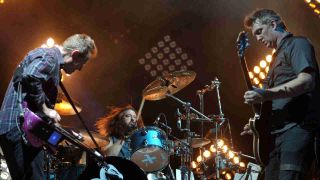
The latter, ever the musical gadfly, had already played on the fabled Super Session with Al Kooper and Mike Bloomfield, before hoofing it over to David Crosby’s gaff, inviting over some English bloke and forming CSN. This threesome came to embody the good, bad and contrary nature of your superstar combo. All three had fled problematic bands. Graham Nash had become disillusioned within the restrictive parameters of The Hollies’ pure pop; Crosby had been unceremoniously booted from The Byrds; Stills had been crushed by the break-up of Buffalo Springfield. Yet as a trio – and soon with the addition of Neil Young – they could all pull in one direction, harmonised by devotion to a single cause: making the kind of folksy, acoustic statements that both played to their individual strengths and chimed with the new, socially-conscious generation of protest and change. But that was before all the in-fighting.
Resentment set in, magnified by attendant egos and a volatile chemistry that Crosby compared to “juggling bottles of nitroglycerin”. The whole on-off shebang became a byword for indulgence in the 70s. Their 35-date tour of 1974, for some time the most commercially successful in US history, grossed over $10m. CSNY each had their own soundman and crew and blew into town in Lear jets (aside from Young, that is, who preferred his customised GMC Camper), armed with up to 30 catering staff. The combined tour entourage was around 85. Spinal Tap writ large – and very real. It prompted a major piece in Time magazine – ‘Return of a Supergroup’ – which posited that, despite pulling in megabucks, such bands were doomed to failure. The whole thing, they said, was merely a “potent but short-lived phenomenon”.
Go tell that to the class of 2010. They’re all at it: Chickenfoot, Dead Weather, Velvet Revolver, Monsters Of Folk, Black Country (or whatever the new Hughes-Bonamassa-Bonham outfit is called). And of course Them Crooked Vultures, the most high-profile of the lot. Much like CSNY did in the 70s, the Vultures seem to embody a sea change in rock sensibility. Except that the new model is one of democratic utopia. Today’s deferential supergroups claim to leave their egos outside the door. The songs on the Vultures’ terrific self-titled debut were all co-writes (though Homme provides the lyrics), each member’s input as valid as the next, a climate of consensus prevailing over any self-serving notions or accusations of subterfuge. It’s a formula that suits them well, judging by live shows and the thunderous, metallic KO of their recorded output.
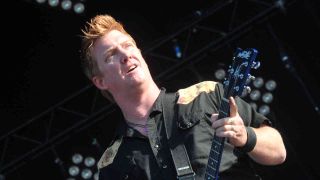
“We’re kinda like a Special Forces Unit,” offers Homme. “We each have our own speciality and it’s three guys who are willing to listen to each other and take a minute rather than snap to a judgement. I believe any one of us could turn the other guys to their way of thinking, given the right discussion. The decision-making is done by the three of us.”
The music itself takes Zeppelin as a rough fix, then canters off at all points on the compass. James Brown grooves get busy with huge Sabbath riffs; clavinets and keytars bulge from Metallica-sized party pants; Middle Eastern figures loom behind jagged QOTSA rhythms. There are soft textures and strange subtleties, but most of the time it’s plain HUGE. “We could have easily taken a more mellow turn with that record,” explains Homme, “because we also had three acoustic songs written. But in the end we felt like the first record should be a steamroller of eerie darkness.”
It’s clearly a symbiotic relationship that felt right immediately. “There wasn’t a lot of discussion, ever, about dynamic or control or even music,” explains Grohl. “If someone didn’t like something, they’d just say so and we’d move forward from that. It’s a simple band to be in, because you rely on this person next to you and you have this trust with everyone. When we have those moments where we go off on a jam, on our way to somewhere we’ve never been before, we’re not worried about how to get back. As long as the three of us are there together, we’ll make it.” John Paul Jones concurs: “It’s very democratic, very organic. To be honest, I’d forgotten the term ‘supergroup’, until people point out: ‘Oh, you’re a supergroup!’ It’s definitely just the ‘S’ word for me. Everyone just seems very natural and relaxed in the Vultures. And I think it helps that we’ve all done what we’ve done before. We all know who we are and none of us have to prove anything. There’s a lot of life and vitality in the band. And everyone just seems to know when something isn’t working. You don’t have to pussyfoot around anybody.”
There seem to be no hidden agendas, the band instead propelled by an innate sense of self-confidence. Indeed, Jones sees parallels between the natural surety of the Vultures and that other band of his. “People really didn’t know what to make of Zeppelin back in the day,” he remembers. “Every album we brought out was greeted with: ‘Oh what do they think they’re doing now? It’s too commercial, they’re going to lose all their fans!’ That happened with every record, but it didn’t bother us at all because we knew what we were doing. The idea was that if we liked it, then someone else was bound to. It’s the law of probability. And it’s the same with the Vultures. If you start worrying about trying to second-guess the public, you’re screwed. If you liked and truly understood Zeppelin, you’ll probably like the Vultures. It’s got the same drive and impulse.”
Jones also sees similarities in the easy chemistry between the two bands, likening the Vultures’ instant rapport to that of Zeppelin’s first ever rehearsal, back in London in August 1968. “We were doing songs that none of us knew more than four bars of, but we just started to play. And I remember [manager] Peter Grant put his arms around all four of us at the end and lifted us all up off the floor: ‘Boys, you were bloody great!’ I think we all knew we had something special.”
So are the Vultures the very ideal of what a supergroup should be? They’re certainly aware of the implications of the word. Says Homme: “I never turn to Brody [Dalle, Homme’s then-wife] and say: ‘Sweetie, I’m off to jam with my supergroup. I’ll be back in an hour.’ I think it would be different if I lived inside a graphic novel, like Sin City or something. [Affects dramatic anchorman voice]: ‘Rock’n’roll is dying! It’s out in the ocean somewhere! We need a supergroup to save us!’ The word has a connotation of resting on your laurels, presupposing you’re super. I think it’s really important for a band like this to not worry about what the current trend is, but just be itself.”
Grohl is similarly dismissive of the whole idea. “I know this might sound ridiculous,” he says, “but the Vultures began just like any other band I’ve ever been in. Josh and I talked about starting up something and I said: ‘Hey, want me to call John?’ And he said: ‘Sure’. It’s not unlike my band Brain Damage when I was 15 years old. My buddy Dave and I said: ‘Y’know, that guy Reuben’s pretty good. Let’s call him’. I guess with supergroups, there are connotations of intention that might be questionable. But at the same time I get the fact that we’re three different musicians with three established careers, we’ve made three names for ourselves and now we’ve come together to do one thing. But I think the term is kinda silly – if I didn’t, I’d be kind of an asshole for thinking that I’m super.”
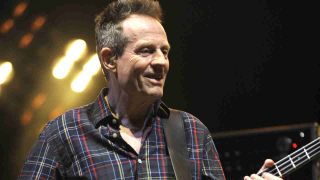
So here they are. Not for them the preciousness of CSNY, the inter-band sniping of Velvet Revolver, the ongoing soap opera that is Black Country or indeed the schisms that ruined Cream (twice – even their brief 2005 reunion fell foul of “a certain amount of animosity”). No, the Vultures are solid, old enough and wise enough to avoid any of those common traps. It still sounds like some idyllic three-way honeymoon.
“There are certain moments when I’m reminded that John was in my favourite rock band of all-time,” says Grohl. “It’s when we’re on stage and I’m soaking wet from playing for the last hour and a half, and we’re in the last jam of the night, and he’s got the neck of his bass underneath my Riot cymbal and we’re staring each other in the eyes, smiling and thinking: ‘OK, let’s go, let’s fucking go!’
“For the past 20 years I’ve been recognised as the cymbal-cracking, punk-rock Muppet-Animal drummer, when really my whole life I’ve loved listening to funk, dance, disco and R&B. When John and I sit down at soundcheck we don’t bust into some fucking hard’n’fast rock thing. We just start to fucking groove together. It’s one of the great things about Zeppelin and one of the great things about the Vultures: it can be dark and it can be heavy, but it can still groove.”
The factors which will ultimately determine the Vultures’ long-term fate are likely to come from outside the band, rather than within. As highlighted by the LA fiasco, there are clearly logistical and potentially destabilising issues in running a group with a three-way management set-up. But the biggest foreseeable hazard might well be the small matter of how to work around the day jobs. Grohl has plans for a new Foo Fighters album – “We’ve been writing and demoing Foo Fighters stuff for the last couple of months, so we’ll go into the studio in September to start working on the next one” – while Homme has dusted off QOTSA for a bunch of festival shows this summer.
After Reading, he reveals, “Queens are going to get back in the studio and begin the process of trying to destroy everybody else”. So how are all these activities compatible? “The Vultures and the Foo Fighters are two entirely different experiences, but they serve each other well,” reasons Grohl. “The drums, for me, even though they’re not my first instrument, are definitely my home. But the Foo Fighters represent something more than just a band to me; they represent something very deep and meaningful. It’s the thing that helped me get over Nirvana. It’s the thing that helped me continue to fall in love with music over and over again. I don’t want to make a stupid analogy, but being in the Vultures is like taking a Maserati down the fuckin’ autobahn, with the speakers on 10. It’s really fuckin’ exciting. And it’s great to go from one to the other. I can’t wait to come back and do shows with the Vultures. Y’know, it’s like visiting someone you haven’t seen in a long time and they’re three inches taller and they have tits!”
Homme mirrors his bandmate’s sentiments. “I’ve always embraced my own musical schizophrenia,” he says, “and the Vultures is just another room in that mansion of personality. [QOTSA, Eagles Of Death Metal, The Desert Sessions and Them Crooked Vultures] are all kind of requirements for each other. They eternally till the soil for the other. When I get involved in something, you get everything I have to give.”
It’s fighting talk alright, but will schedules and other commitments really allow enough light for a second Vultures album? Or, as the rumour mill has been suggesting of late, are they over before they’ve really begun? Grohl, Homme and Jones are all convinced they’re in it for the long-term. “I really hope there’ll be a second album,” contends Grohl. “It doesn’t feel like a side-project, it feels like a band. It’s just a matter of figuring out how we can make it work. Personally, I think we could walk into the studio and make a record in two weeks. There’s no question in my mind that we could do that.”
Says Jones: “It’s just a question of finding time. We all bring different things to the mix and are all keen to keep this going. I love it.”
Homme is particularly adamant: “I feel very comfortable speaking for everyone: there has to be another Vultures record. Part of why I love doing this is because there’s absolutely no rulebook. There’s a flow of suggestions and endless opinions. There’s really no way to do this wrong. The Vultures has to happen, because we have too much of a good time doing it. What we need is to come together the same way we did the first time. And I think that requires a little bit of air. The mystery and magic – the surprise element – is what I love in music. It works so well that there’s no reason why we couldn’t turn up just behind your shoulder again. Like we did the first time round.”
Here’s hoping.
Originally published in Classic Rock issue 146, May 2010
